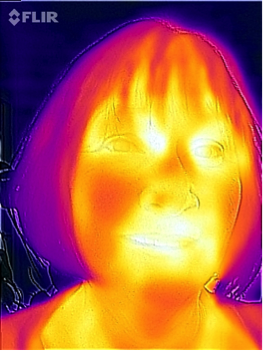1-DAY SHORT COURSE:
Introduction to Thermal design for six sigma
Cooling is often treated as a cost that adds no value to the end customer and as a problem to be solved after hardware integration. Yet cooling is one of the main performance limiters in electronic products and experience has shown that the thermal design of a product is made or broken at the concept, or ideation, stage, much earlier in development. Early use of CFD in the development process contributes to achieving a first-time-right design, mitigating the risk for costly rework and time delays in late design phases. Optimising the cooling design reduces both development and final product cost and increases productivity and profitability.
Increased availability and user friendliness of computer simulations have seen simulation-based design verification replacing expensive and time-consuming hardware prototypes. Now is the time to take the design process to the next level – move away from trial-and-error based design iterations and use simulations to progress towards the structured, data driven approach of Design-for-Six-Sigma.
Formerly solely associated with the large numbers of data available in mass-production, automated CFD calculations unlock the statistical toolkit of DfSS. The unprecedented availability of virtual experimental data can be used in tools like virtual Design-of-Experiments, which enables not only to fully map the solution space but also to determine the transfer function between design inputs and thermal outputs like component temperatures. Subsequently the transfer function can be used directly for design optimization and in Monte Carlo analysis to calculate the design capability to fill thermal requirements over a wide range of use conditions. The end result of the Thermal DfSS process is to go beyond simply a working thermal design – it is to achieve a design that you are confident is optimized vs set constraints within a competitive timeframe, and that risk assessment of in-service operation has been performed.
This 1-day short course focusses on the application of Design for Six Sigma DIDOV statistical tools utilizing CFD computer simulation. Topics include but are not limited to – Thermal DfSS way of working in product development, setting up and analysing a virtual Design-of-Experiments matrix, derivation and use of transfer functions, Monte Carlo simulations and Capability analysis for risk assessment. Examples shown use commercially available tools (FloTHERM, FloTHERM Command Center, Excel and Minitab) but the techniques are general and can also be used with other software tools.
After the training, participants will be better equipped to tackle questions like:
- Are my thermal targets feasible?
- What are the most important design parameters?
- What does my solution space look like?
- What is my optimal solution?
- Will this work in all circumstances?
- How many failures will I have?
Course contents:
- Thermal design way of working in product development – Introduction to thermal Design for Six Sigma
- Thermal input and output variables: heat, temperatures and mechanical design
- Virtual Design of Experiments in thermal architecture choice
- Virtual Design of Experiments in thermal design, the transfer function
- Design Optimization with the transfer function
- Robust design and Monte Carlo simulations
- How many failures will I have? Capability of the thermal design
The short course is 9.00 – 17.00 on September 25th. Lunch, 2 coffee breaks and course book are included in the price. A limited number of student places is available at 25% student discount.
About the tutor
 Ir. G. A. Wendy Luiten
Ir. G. A. Wendy Luiten
Wendy Luiten received a MSc in mechanical engineering, heat & fluid flow, from Twente Technical University, the Netherlands, in 1984. She was a senior thermal specialist at Philips Research Eindhoven for 30+ years, working on cooling of consumer electronics, personal health and LED lighting products. She is also lead trainer for Design for Six Sigma Green Belt, lead trainer for Design for Six Sigma Black Belt, and nominated Master Black Belt at Philips Research and formerly at Philips Research Lighting (now Signify).
She is the author over 20 papers and holds 6 patents and pending patents. She received the best paper award at SEMI-THERM 2002, the Harvey Rosten award for Excellence in 2014 and the Philips Research Outstanding Achievement award in 2015. She serves on the program committee of SEMI-THERM and THERMINIC and was one of the program chairs of THERMINIC 2017. Wendy Luiten has lectured in Electronics Cooling for over 15 years, in pre-conference short courses at SEMI-THERM, Latindisplay and THERMINIC and as a lecturer in electronics cooling workshops at the High-Tech Institute Eindhoven. She has provided over 15 Green Belt trainings and multiple Black Belt trainings and developed a large part of the training materials.
Wendy Luiten presently owns her own consultancy firm, providing advice and trainings on the joint subjects of Thermal Management of Electronic Systems and Design for Six Sigma.